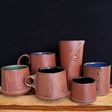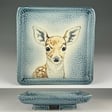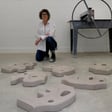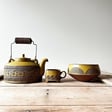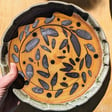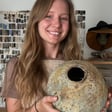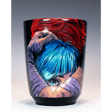
What you can learn from an Award winning sculptor w/ Tessa Eastman
In this episode, we delve into the life and insights of award-winning sculptor Tessa Eastman. Tessa shares her experiences transitioning from pottery to sculpture, the significance of teaching in her artistic journey, and the influence of nature and the natural world on her work. She discusses the impact of awards on her career, particularly her first award, which granted her a solo show and funding. Tessa also offers advice for aspiring artists on discovering their unique voice, the process of applying for art opportunities, and the importance of dedicated practice. Additionally, she emphasizes the value of attending workshops and learning directly from other makers. The episode concludes with details on how to learn more about Tessa Eastman you can learn more about tessa by checking out her instagram here https://www.instagram.com/tessa_eastman/
Only 8 more spots left for the how to handbuild a goblet cup workshop! happening on May 31st click this link to save your spot https://shapingyourpottery.ck.page/products/how-to-make-a-slab-built-goblet-cup-w
00:00 Meet Tessa Eastman: An Award-Winning Sculptor's Journey 00:28 The Impact of Teaching on Creativity 02:56 The Evolution from Potter to Sculptor 07:08 The Significance of Awards in an Artist's Career 10:10 Advice for Aspiring Award-Winning Artists 11:26 Discovering the Sculptural Voice: A Journey Through Nature and Color 16:18 The Art of Hand Building: Bringing Sculptures to Life 22:00 Finding Your Unique Voice in Sculpture 25:53 Creating Opportunities and Navigating the Art World 29:37 Final Thoughts and Where to Find Tessa Eastman

